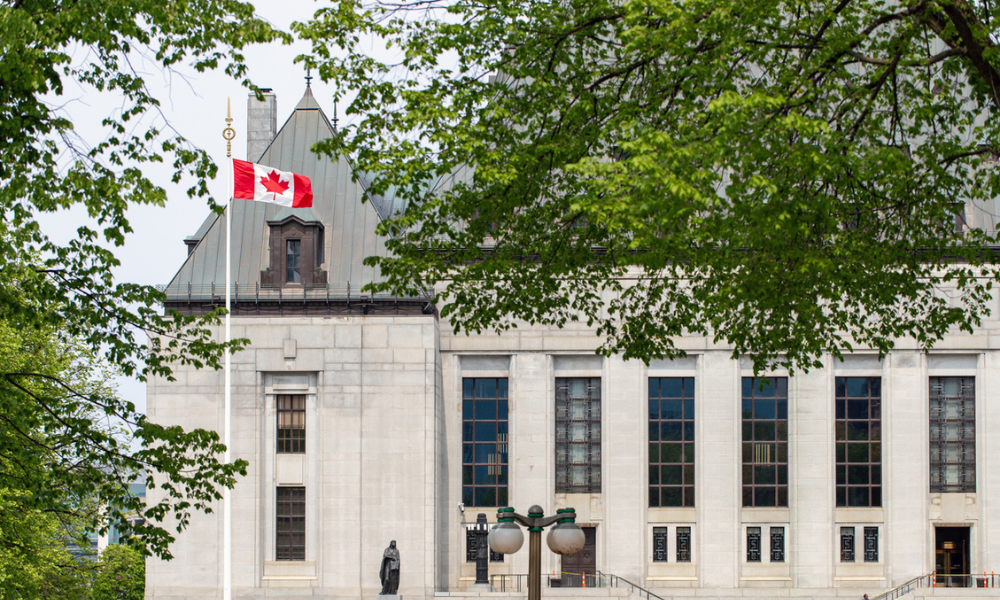
Violation experienced by some accused can make proceedings against co-accused abuse of process

An accused person does not need to directly and personally experience a Charter breach to apply for a stay of proceedings under s. 24(1) of the Charter, if an abuse of process marked the police investigation or court proceedings targeting them, the Supreme Court of Canada has found.
The SCC released its decision in R. v. Brunelle, 2024 SCC 3 on Friday morning.
The case dealt with 31 people the police had arrested for alleged participation in an organized narcotics trafficking operation. The accused were divided up and tried in four separate groups. The first group filed for a stay of proceedings, arguing that violations of their ss. 8 and 10(b) Charter rights led to an abuse of process.
The trial judge found that by waiting until the accused were taken to the police station to allow them to exercise their right to retain and instruct counsel, the police had violated their rights under s. 10(b). Some accused in the group had either been permitted to call a lawyer at the scene of the arrest or had declined their right to retain and instruct counsel. But because some had been required to wait until they reached the police station, and that delay was common police practice, the judge said the Charter infringement they experienced rendered the proceedings against the entire group an abuse of process. He entered a stay of proceedings for all 31.
The Court of Appeal allowed the Crown’s appeal and ordered a new trial. The appeal court found that some of the accused did not have standing to apply for a stay of proceedings under s. 24(1) of the Charter because the Charter infringement had not impacted them directly.
The decision in R. v. Brunelle, 2024 SCC 3 means that an accused person can seek a Charter remedy by alleging abuse of process in a case without personally being subject to the Charter breach, says Michel Lebrun, who acted for the accused on appeal.
The decision will significantly impact how police must ensure the s. 10(b) rights of an accused, says Nicolas Abran, a lawyer for the Crown and deputy chief prosecutor at the Directeur des poursuites criminelles et pénales du Québec. An accused is not necessarily entitled to call their lawyer immediately upon being arrested, he says.
“The Supreme Court confirmed that police officers don't need to bring a phone or give their phone to an accused upon detention,” says Abran. “What they need to do is assess the circumstances and give them the right to call a lawyer at the first reasonable moment.”
In a decision written by Justice Michelle O'Bonsawin, the SCC agreed that there should be new trials for all four groups but found that all 31 of the accused had standing to apply for a stay of proceedings, even those who were not the victims of a breach of trial fairness or any of the Charter breaches leading to the alleged abuse of process.
O'Bonsawin found the trial judge had erred in not determining whether each of the accused had experienced a s. 10(b) violation and by entering a stay of proceedings for all the accused without first considering “less drastic remedies” that would have “redressed the prejudice to the integrity of the justice system.”
To meet the threshold for an abuse of process, state conduct must either compromise trial fairness or undermine the integrity of the justice system. When a court finds an abuse of process and a Charter right has been violated, s. 24(1) of the Charter allows the court to grant a remedy it deems appropriate and just in the circumstances, including a stay of proceedings. A stay of proceedings is only for the “clearest of cases.” The case must meet three conditions: there must be prejudice to the accused’s fair trial right or to the integrity of the justice system that the conduct of the trial or its outcome will manifest, perpetuate, or aggravate; there must be no alternative remedy that would redress the prejudice; and the interests in favour of granting a stay must supersede society’s interests in a final decision on the merits.
To have standing to apply for a remedy under s. 24(1), an accused does not need to demonstrate the existence of “directly personal prejudice,” what matters is that the state conduct prejudices the justice system’s integrity in the eyes of society.
For the abuse of process to compromise the accused’s trial fairness where the accused did not themselves directly experience the Charter breach, there must be “a sufficient causal connection between the abusive conduct and the proceedings against the accused.” Where the abuse occurred in the investigation or police operation targeting the accused or tainted the court proceedings, the connection is considered sufficient. O'Bonsawin found all the accused have standing to apply for a stay of proceedings because they were all directly targeted by the police investigation that resulted in abusive conduct.
The trial judge had found that the police had violated the s. 10(b) rights of everyone in the first group of accused because it was a police practice to postpone the exercise of the right systematically. That was an error, said O'Bonsawin, because the judge should have considered the particular circumstances of each arrest.